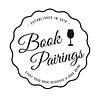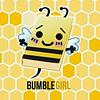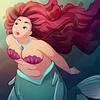Take a photo of a barcode or cover
POPSUGAR 2019 Reading Challenge: A book old from multiple points of view.
I really loved how this book was constructed. It features three beekeepers throughout history: William, an amateur naturalist and beekeeper in the mid-19th century England. George, a professional beekeeper in early-21st century USA. Tao, a manual pollenator at the end of the 21st century in China after the world-wide collapse of the bee population.
Despite having very different experiences of their relationship with bees, each protagonist has a lot in common. They are all parents who worry about their children. They face large setbacks in their work. They experience periods of physical and emotional exhaustion at points in their stories. And their ambitions for their children cause strife for their families. At times all three are frustrating and sometimes hard to empathise with, William especially with his single-minded and sometimes even selfish tendencies. Nonetheless, I felt deep sympathy for them all at different points.
The imagined future of how China continued producing crops despite a complete lack of insect population felt very genuine. I could easily imagine that becoming reality should the worst happen.
Most of the chapters were quite short which worked well as it kept up the pace of the story even though sometimes the chapters themselves might not be action-packed, Tao's especially. The links between each protagonist also crystallised nicely as the story progressed.
As well as an important cautionary tale on a large scale about how we treat the environment and on a smaller scale about family relationships, it was a moving story in several ways and I thoroughly enjoyed it.
I really loved how this book was constructed. It features three beekeepers throughout history: William, an amateur naturalist and beekeeper in the mid-19th century England. George, a professional beekeeper in early-21st century USA. Tao, a manual pollenator at the end of the 21st century in China after the world-wide collapse of the bee population.
Despite having very different experiences of their relationship with bees, each protagonist has a lot in common. They are all parents who worry about their children. They face large setbacks in their work. They experience periods of physical and emotional exhaustion at points in their stories. And their ambitions for their children cause strife for their families. At times all three are frustrating and sometimes hard to empathise with, William especially with his single-minded and sometimes even selfish tendencies. Nonetheless, I felt deep sympathy for them all at different points.
The imagined future of how China continued producing crops despite a complete lack of insect population felt very genuine. I could easily imagine that becoming reality should the worst happen.
Most of the chapters were quite short which worked well as it kept up the pace of the story even though sometimes the chapters themselves might not be action-packed, Tao's especially. The links between each protagonist also crystallised nicely as the story progressed.
As well as an important cautionary tale on a large scale about how we treat the environment and on a smaller scale about family relationships, it was a moving story in several ways and I thoroughly enjoyed it.
This is an incredibly ambitious novel that manages to be an intimate tale of family, whilst also looking outwards to comment on the future of humanity at large.
We follow three main story threads at once: one set in the UK, 1852; one in the US, 2007; and one in China, 2098. Though they differ in location, character and plot, there are strong thematic and narrative parallels between all three. William, George and Tao's lives are all dominated in some way by the importance of their work involving bees and pollination, but they also all have big ambitions for their children, even if they can't always see the harm they cause by enforcing their own desires and expectations onto them. Indeed, our three protagonists are all realistically flawed, despite wanting what is best for both the bees and their families. The ways their stories are woven together - though I didn't personally find them all that surprising, in the end - did feel satisfyingly subtle and effective, rather than contrived. The multiple timelines also did well to reflect the timeless, universal nature of the struggles that come with parenthood, and the longevity of our vital bond with nature.
The trouble with multiple perspectives, however, is that one is almost always going to stand out as the strongest. And I must admit, I found William and George's sections a little slow going at first, leaving me eager to get back to Tao. I was, on the other hand, impressed that a book that is at once historical fiction, contemporary family drama, and futuristic dystopian could be balanced out and made to feel like one cohesive story, which it absolutely did.
In the difficulties her characters face, and the ways their stories are linked, Lunde asks us to consider what legacy we want to leave for our children on a personal level, but also what kind of world we want to leave for the next generation as a whole. Ultimately, she highlights how intimately our fate is tied to that of the bees, drawing beautiful parallels between them and us; reminding us that, like in the most successful hives, we must come together as one and work for the collective good if we are to survive.
I also always say that if a book has been translated well, you shouldn't be able to tell you aren't reading it in its original language, so props to Diane Oatley for the excellent translation from Norwegian.
We follow three main story threads at once: one set in the UK, 1852; one in the US, 2007; and one in China, 2098. Though they differ in location, character and plot, there are strong thematic and narrative parallels between all three. William, George and Tao's lives are all dominated in some way by the importance of their work involving bees and pollination, but they also all have big ambitions for their children, even if they can't always see the harm they cause by enforcing their own desires and expectations onto them. Indeed, our three protagonists are all realistically flawed, despite wanting what is best for both the bees and their families. The ways their stories are woven together - though I didn't personally find them all that surprising, in the end - did feel satisfyingly subtle and effective, rather than contrived. The multiple timelines also did well to reflect the timeless, universal nature of the struggles that come with parenthood, and the longevity of our vital bond with nature.
The trouble with multiple perspectives, however, is that one is almost always going to stand out as the strongest. And I must admit, I found William and George's sections a little slow going at first, leaving me eager to get back to Tao. I was, on the other hand, impressed that a book that is at once historical fiction, contemporary family drama, and futuristic dystopian could be balanced out and made to feel like one cohesive story, which it absolutely did.
In the difficulties her characters face, and the ways their stories are linked, Lunde asks us to consider what legacy we want to leave for our children on a personal level, but also what kind of world we want to leave for the next generation as a whole. Ultimately, she highlights how intimately our fate is tied to that of the bees, drawing beautiful parallels between them and us; reminding us that, like in the most successful hives, we must come together as one and work for the collective good if we are to survive.
I also always say that if a book has been translated well, you shouldn't be able to tell you aren't reading it in its original language, so props to Diane Oatley for the excellent translation from Norwegian.
In dem Buch lernt man drei Charaktere kennen: William, George und Tao. Während William in der Vergangenheit lebt und die Imkerei und Bienenforschung gerade für sich entdeckt, ist George beruflicher Imker und steht kurz vor dem Bienensterben, welches sich sehr schlecht auf die Zukunft auswirkt, in der Tao lebt und in der es keine Bienen mehr gibt. Die Folge sind weltweiter Hunger und Bestäubung von Bäumen per Hand, damit überhaupt noch Obst und Gemüse wachsen kann.
Die Geschichte der Bienen zeigt uns eine nur allzu realistische, und erschreckende, Zukunft und bringt den Leser so subtil dazu, über sein Handeln nachzudenken und welche Folgen es haben könnte.
Mir persönlich hat die Geschichte von Tao am besten gefallen, da man sich gut in den Charakter versetzen konnte und ich mir bisher auch noch nicht vorgestellt habe, wie das Bienensterben enden könnte.
Außerdem hat mir gefallen, dass das Buch wirklich subtil war, d.h. es gab keine eindeutige Botschaft wie "ihr müsst unsere Umwelt schützen!", sondern es wurde auf eine sehr leichte und interessante Art, eben durch die drei Geschichten, dahin geführt.
Alles in allem kann ich es jedem empfehlen, der mal weg möchte von der üblichen Fiktion, weil ich finde, dass das eine Vorstellung ist, die allzu bald wahr werden könnte.
Die Geschichte der Bienen zeigt uns eine nur allzu realistische, und erschreckende, Zukunft und bringt den Leser so subtil dazu, über sein Handeln nachzudenken und welche Folgen es haben könnte.
Mir persönlich hat die Geschichte von Tao am besten gefallen, da man sich gut in den Charakter versetzen konnte und ich mir bisher auch noch nicht vorgestellt habe, wie das Bienensterben enden könnte.
Außerdem hat mir gefallen, dass das Buch wirklich subtil war, d.h. es gab keine eindeutige Botschaft wie "ihr müsst unsere Umwelt schützen!", sondern es wurde auf eine sehr leichte und interessante Art, eben durch die drei Geschichten, dahin geführt.
Alles in allem kann ich es jedem empfehlen, der mal weg möchte von der üblichen Fiktion, weil ich finde, dass das eine Vorstellung ist, die allzu bald wahr werden könnte.
Romanzo di un’autrice norvegese diviso tra 3 personaggi-voci narranti, separati dal tempo e dal luogo in cui esistono. William racconta dall’Inghilterra 1852, George dagli Stati Uniti del 2007 e Tao dalla campagna cinese del 2098. Le loro vite sono collegate dal rapporto che hanno con le api: William è uno zoologo fallito che vuole costruire un nuovo tipo di arnia, George è un apicultore nell’epoca della sparizione di un’incredibile percentuale di sciami di api (fatti preoccupanti realmente accaduti). Tao è il futuro prossimo dell’umanità, che deve vivere con le conseguenze dei danni ambientali provocati dall’uomo: le api si sono davvero estinte, l’occidente è collassato, Tao oggi è una delle migliaia di operai che sostituiscono le api, impollinando a mano gli alberi da frutta, in una condizione di futuribile schiavitù.
Contenuti e struttura sono interessanti, purtroppo la fattura del libro non è all’altezza dei suoi stessi obiettivi: troppo lungo, la prosa sciatta e prolissa, gonfia a dismisura le poche idee efficaci alla base ma non riesce a trovarne altre a supporto. Se fosse stato lungo la metà avrebbe funzionato, ma così diventa una lettura frustrante. Il raccordo tra i diversi personaggi arriva fuori tempo massimo, su un finale compilativo, scolastico. Lunde non coglie l’occasione di sfruttare elementi come il libro e i disegni (menzionati verso la fine a supporto del legame tra i 3) per farne un filo rosso che pervada il romanzo tenendo le storie insieme.
Rimane stimolante tutto ciò che riguarda le api, e più movimentata la parte fantascientifica di Tao, per la sua distanza immaginifica dalle vicende monocordi degli altri due. Il fatto che i personaggi maschili siano terribilmente respingenti non è d’aiuto: sono due conservatori misogini delusi dalla propria prole, altro tema che accomuna i 3 in modo abbozzato (la trasmissione del sapere ai figli) e che solo sul personaggio di Tao non risulta opprimente; ma la caratterizzazione di Tao viene poi tutta centrata sul suo ruolo di madre, altro aspetto deludente del romanzo.
Contenuti e struttura sono interessanti, purtroppo la fattura del libro non è all’altezza dei suoi stessi obiettivi: troppo lungo, la prosa sciatta e prolissa, gonfia a dismisura le poche idee efficaci alla base ma non riesce a trovarne altre a supporto. Se fosse stato lungo la metà avrebbe funzionato, ma così diventa una lettura frustrante. Il raccordo tra i diversi personaggi arriva fuori tempo massimo, su un finale compilativo, scolastico. Lunde non coglie l’occasione di sfruttare elementi come il libro e i disegni (menzionati verso la fine a supporto del legame tra i 3) per farne un filo rosso che pervada il romanzo tenendo le storie insieme.
Rimane stimolante tutto ciò che riguarda le api, e più movimentata la parte fantascientifica di Tao, per la sua distanza immaginifica dalle vicende monocordi degli altri due. Il fatto che i personaggi maschili siano terribilmente respingenti non è d’aiuto: sono due conservatori misogini delusi dalla propria prole, altro tema che accomuna i 3 in modo abbozzato (la trasmissione del sapere ai figli) e che solo sul personaggio di Tao non risulta opprimente; ma la caratterizzazione di Tao viene poi tutta centrata sul suo ruolo di madre, altro aspetto deludente del romanzo.
3.5. Maybe 4. I’ll have to wait to see how I feel after my book club discussion tomorrow :)
This novel is a thought provoking look at what our world/ecosystem might be like if bees were to go extinct. The story follows three different character across three time periods: 1898, 2007, and 2098 and it’s set in completely different parts of the world as well; England, USA and China respectively. This is a bit of a speculative fiction and family drama hybrid. Lunde explores the relationships between parents and their children throughout the story as well, which adds another layer.
Overall, I thought that the book did not live up to my expectations or the hype. Lunde is a great writer, but the plot or lack thereof never drew me in. Normally I enjoy multiple timelines or stories being weaved together, but in this case they didn't feel very connected. I also found that I didn't really care about any of the characters besides Tao, a Chinese woman who has a job pollenating orchards by hand in 2098. Honestly I would have loved if the story just followed her plot line and had built out that world.
Overall, I thought that the book did not live up to my expectations or the hype. Lunde is a great writer, but the plot or lack thereof never drew me in. Normally I enjoy multiple timelines or stories being weaved together, but in this case they didn't feel very connected. I also found that I didn't really care about any of the characters besides Tao, a Chinese woman who has a job pollenating orchards by hand in 2098. Honestly I would have loved if the story just followed her plot line and had built out that world.
3.5 ⭐️ read. Great piece of fiction based a lot on fact about the threat our planet and society faces with the loss of bees. But it’s told through three different family stories over three different periods in time and three different countries (1852, 2007 and 2098) that are all connected in their own way. A pretty thought provoking and very readable story about families, relationships (especially between children and parents) with each other and nature.
Une excellente lecture au scénario efficace et à la plume maîtrisée. Maja Lunde mêle habilement le destin des abeilles et les histoires familiale des trois protagonistes. Passé, présent et futur se mélangent pour mieux nous faire prendre conscience de l'urgence des problèmes écologiques.
Ma chronique complète
Ma chronique complète
(Review in English below, due to the book being published in English in August 2017)
Der tales meget om Atwood’s The Handmaid’s Tale (eller Tjenerindens fortælling på dansk) i øjeblikket, hvor relevant den er for vore dages samfund og politik. I min optik er Biernes Historie mindst lige så relevant, hvis ikke mere. Politik kan ændres, regeringer kan væltes, en præsident kan træde tilbage – alt sammen fra den ene dag til den anden. Ikke at dette nødvendigvis er nemt eller smertefrit, men ikke desto mindre. Miljøpolitik og fødevareproduktion kan også ændres fra den ene dag til den anden, men der vil komme et punkt, hvor sådan en ændring kommer for sent. Når bierne er væk, er de væk. Det er såre simpelt – og det er først når bierne forsvinder, at det går op for os, hvor afhængige vi er af dem.
Denne bog er delt op i tre tidslinjer, tre fortællinger om tre personer og hvordan deres verden formes af bierne; fortidens gryende forståelse for biernes liv og nytte, nutidens frustration og perpleksitet over deres hastige forsvinden, samt fremtidens verden uden bier, hvor mennesker arbejder fra morgen til aften for at håndbestøve bl.a. frugttræer efter et globalt Kollaps. De tre tidslinjer bevæger sig ind og ud af hinanden ganske fornemt, og hen mod slutningen forbindes de på en simpel, men dybt tilfredsstillende måde, der giver læseren en følelse af, at der er en større mening med tingene. Og jeg vil vove at påstå, at det er denne følelse Lunde går efter – at noget som måske virker småt og ligegyldigt her og nu, kan have indflydelse på senere generationer, ja, måske endda forme fremtiden.
Jeg synes sproget bærer en anelse præg af at være en oversættelse. Men sproget er heller ikke det, man skal læse bogen for – det er fint og flydende, og til tider dejligt simpelt, men langt fra poetisk (det prøver lidt hist og her, men det slår ikke rigtigt igennem). Man skal til gengæld læse bogen for historien, der trumfer sproget. Lunde holder dig interesseret og engageret gennem alle knap 500 sider. Kan især anbefales som sommerlæsning.
/NK
There’s a lot of talk at the moment about Atwood’s The Handmaid’s Tale and how relevant it is for the current political and social climate. In my opinion, The History of Bees is just as relevant if not more. Politics can be changed, governments overthrown, presidents resign – all in a single month, week, perhaps even day. Not that it’s necessarily easy or risk free, but nevertheless. Climate politics and food production can be changed from one day to another, too, but there will come a time when such a change is too late. When the bees are gone, they are gone. It’s very simple. And it’s only when they have gone that we realise how much we rely on them.
This book is divided into three timelines, three stories of three individuals and how their worlds are shaped by bees; the past’s emerging understanding of the bee and its use, the present’s frustration and perplexity over their rapid disappearance, and the future world where the bee has disappeared completely in a global Collapse and humans are forced to work long hours every day to pollinate fruit trees by hand. The three timelines interact beautifully and towards the end are connected in a simple but satisfying way that gives the reader a feeling of being part of something bigger. I suspect this is the exact feeling Lunde was going for – that something seemingly small and insignificant here and now can influence generations to come, can perhaps even shape the future.
The language is simple and good, though no lyrical masterpiece - but do not read this book for the language. Read it for the story and its relevance for the world today. Lunde will keep you interested and engaged through all almost 500 pages.
/NK
Der tales meget om Atwood’s The Handmaid’s Tale (eller Tjenerindens fortælling på dansk) i øjeblikket, hvor relevant den er for vore dages samfund og politik. I min optik er Biernes Historie mindst lige så relevant, hvis ikke mere. Politik kan ændres, regeringer kan væltes, en præsident kan træde tilbage – alt sammen fra den ene dag til den anden. Ikke at dette nødvendigvis er nemt eller smertefrit, men ikke desto mindre. Miljøpolitik og fødevareproduktion kan også ændres fra den ene dag til den anden, men der vil komme et punkt, hvor sådan en ændring kommer for sent. Når bierne er væk, er de væk. Det er såre simpelt – og det er først når bierne forsvinder, at det går op for os, hvor afhængige vi er af dem.
Denne bog er delt op i tre tidslinjer, tre fortællinger om tre personer og hvordan deres verden formes af bierne; fortidens gryende forståelse for biernes liv og nytte, nutidens frustration og perpleksitet over deres hastige forsvinden, samt fremtidens verden uden bier, hvor mennesker arbejder fra morgen til aften for at håndbestøve bl.a. frugttræer efter et globalt Kollaps. De tre tidslinjer bevæger sig ind og ud af hinanden ganske fornemt, og hen mod slutningen forbindes de på en simpel, men dybt tilfredsstillende måde, der giver læseren en følelse af, at der er en større mening med tingene. Og jeg vil vove at påstå, at det er denne følelse Lunde går efter – at noget som måske virker småt og ligegyldigt her og nu, kan have indflydelse på senere generationer, ja, måske endda forme fremtiden.
Jeg synes sproget bærer en anelse præg af at være en oversættelse. Men sproget er heller ikke det, man skal læse bogen for – det er fint og flydende, og til tider dejligt simpelt, men langt fra poetisk (det prøver lidt hist og her, men det slår ikke rigtigt igennem). Man skal til gengæld læse bogen for historien, der trumfer sproget. Lunde holder dig interesseret og engageret gennem alle knap 500 sider. Kan især anbefales som sommerlæsning.
/NK
There’s a lot of talk at the moment about Atwood’s The Handmaid’s Tale and how relevant it is for the current political and social climate. In my opinion, The History of Bees is just as relevant if not more. Politics can be changed, governments overthrown, presidents resign – all in a single month, week, perhaps even day. Not that it’s necessarily easy or risk free, but nevertheless. Climate politics and food production can be changed from one day to another, too, but there will come a time when such a change is too late. When the bees are gone, they are gone. It’s very simple. And it’s only when they have gone that we realise how much we rely on them.
This book is divided into three timelines, three stories of three individuals and how their worlds are shaped by bees; the past’s emerging understanding of the bee and its use, the present’s frustration and perplexity over their rapid disappearance, and the future world where the bee has disappeared completely in a global Collapse and humans are forced to work long hours every day to pollinate fruit trees by hand. The three timelines interact beautifully and towards the end are connected in a simple but satisfying way that gives the reader a feeling of being part of something bigger. I suspect this is the exact feeling Lunde was going for – that something seemingly small and insignificant here and now can influence generations to come, can perhaps even shape the future.
The language is simple and good, though no lyrical masterpiece - but do not read this book for the language. Read it for the story and its relevance for the world today. Lunde will keep you interested and engaged through all almost 500 pages.
/NK







